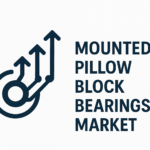The Zinc Methionine Chelates market is witnessing a robust growth trajectory, driven by increasing demand for efficient animal nutrition solutions and a heightened awareness of trace mineral bioavailability in livestock feed. As global populations continue to expand and dietary patterns shift toward higher protein consumption, the need for optimizing animal health and productivity has intensified. Zinc methionine chelates, a form of organic trace mineral, offer superior bioavailability compared to inorganic zinc sources, leading to improved immune responses, better growth performance, and enhanced reproductive health in animals. Livestock producers are increasingly opting for chelated minerals to meet the nutritional requirements of animals while reducing environmental excretion of excess minerals. The market is also benefiting from stringent regulations on antibiotic use in animal feed, which has pushed feed manufacturers toward incorporating more functional additives like zinc methionine to naturally promote growth and immunity. Additionally, innovation in formulation technologies, especially for ruminants and poultry, is helping manufacturers to expand their product portfolios, offering targeted nutrition that supports metabolic efficiency and gut health. This has opened up strong growth avenues in emerging economies across Asia Pacific, Latin America, and the Middle East, where modernization of animal farming practices is gaining pace. The rising costs of veterinary care and the emphasis on disease prevention further fuel the demand for such high-efficiency feed ingredients.
Moreover, the Zinc Methionine Chelates market is experiencing a diversification in application areas, moving beyond traditional livestock such as poultry and swine, to encompass aquaculture and companion animals as well. The adoption rate is particularly strong in countries where animal protein is a key dietary staple and sustainable agricultural practices are being prioritized. Feed manufacturers are leveraging zinc methionine not only for its bioefficacy but also for its compatibility with other nutritional elements, which enhances its role in customized and precision nutrition strategies. The global trend toward clean label and organic meat products is influencing feed formulation choices, further boosting demand for organic mineral supplements. Technological advancements in chelation processes are making it more economically viable for medium and small-scale feed producers to adopt these additives, promoting wider usage across the supply chain. Partnerships between mineral manufacturers and integrated farming companies are helping to streamline supply, reduce costs, and ensure consistent quality, thereby strengthening market dynamics. Additionally, educational initiatives by agricultural extension services and industry associations are playing a crucial role in raising awareness about the long-term benefits of organic trace minerals. As the intersection of animal welfare, environmental sustainability, and economic productivity becomes more prominent, the Zinc Methionine Chelates market is poised to maintain a strong growth outlook well into the next decade.


